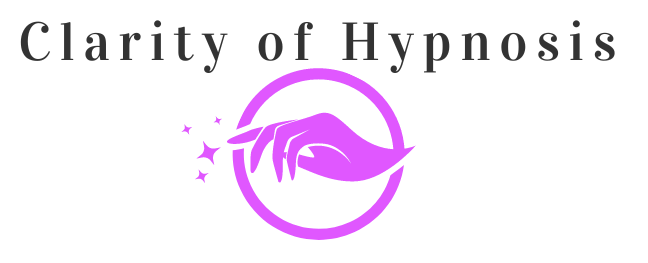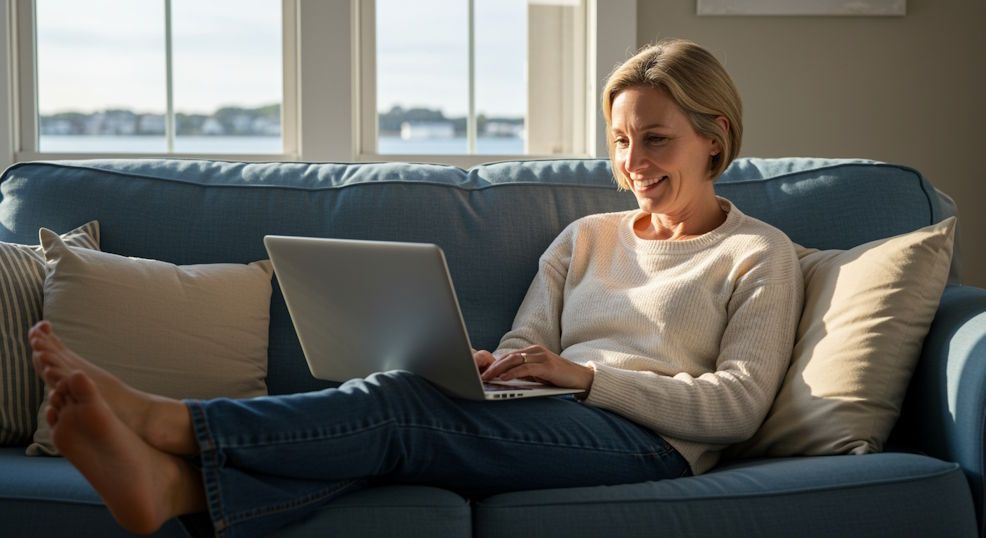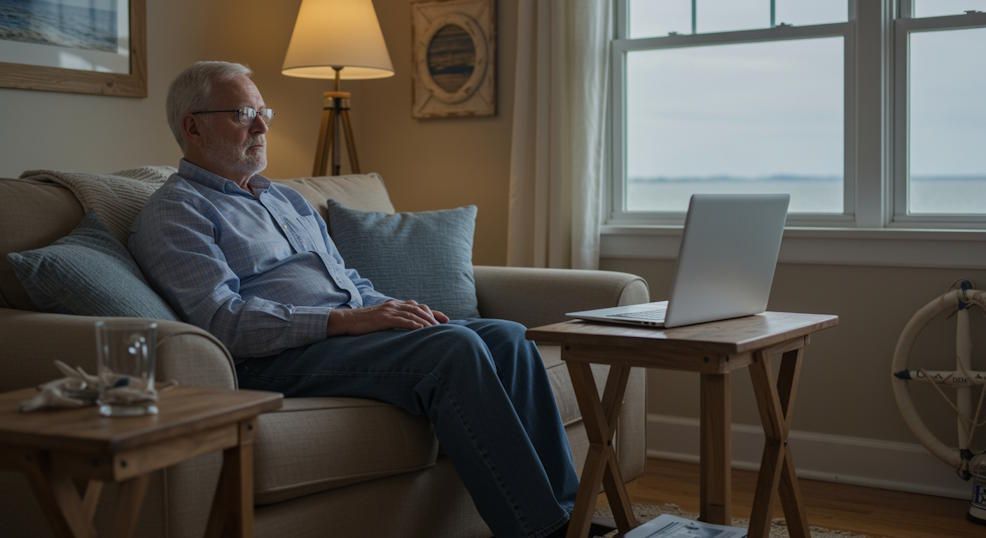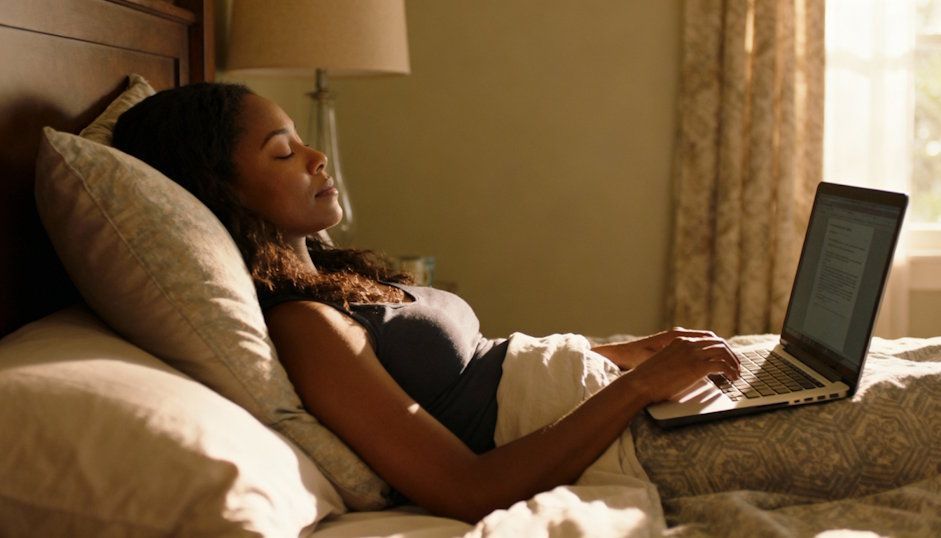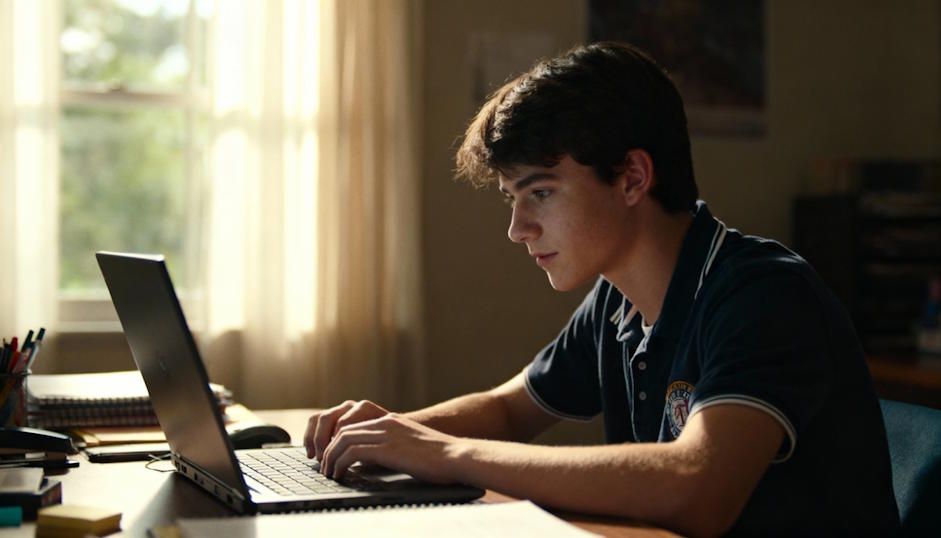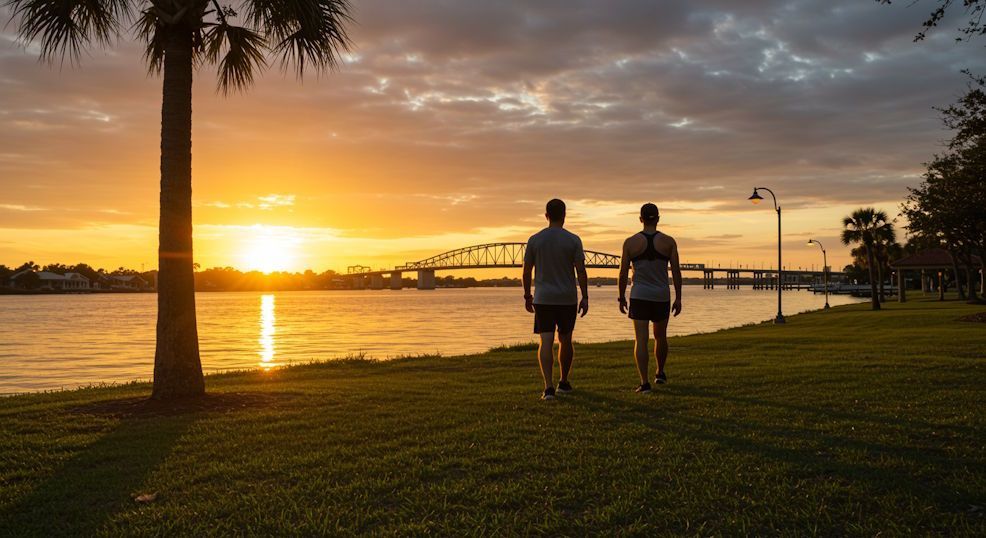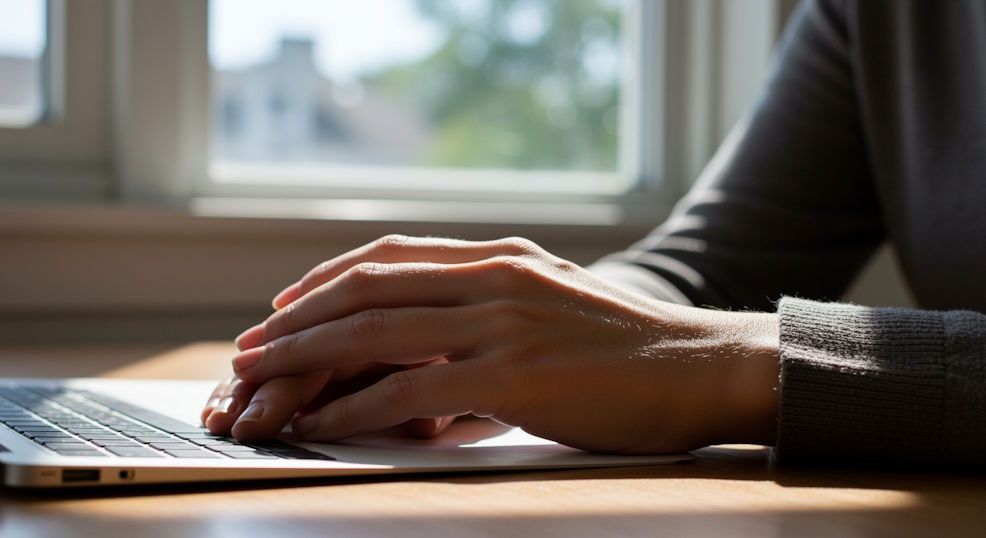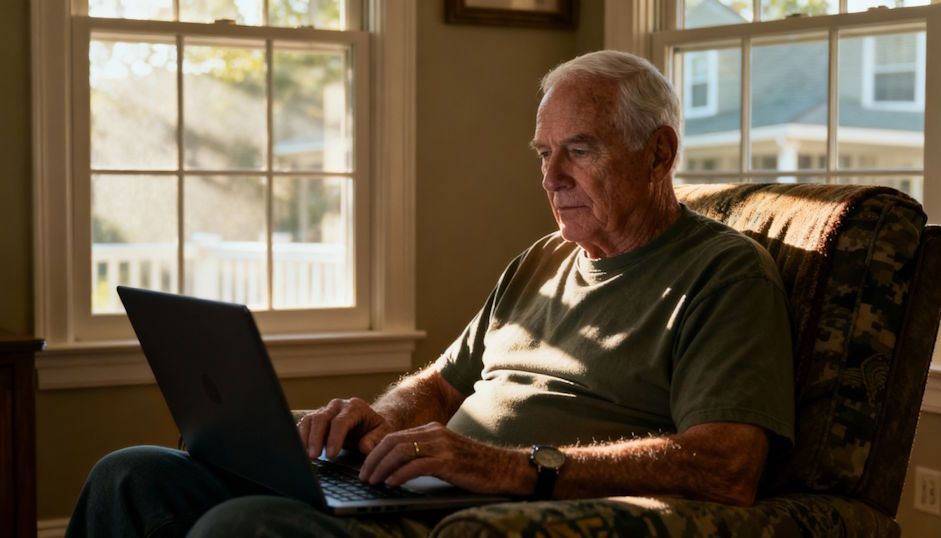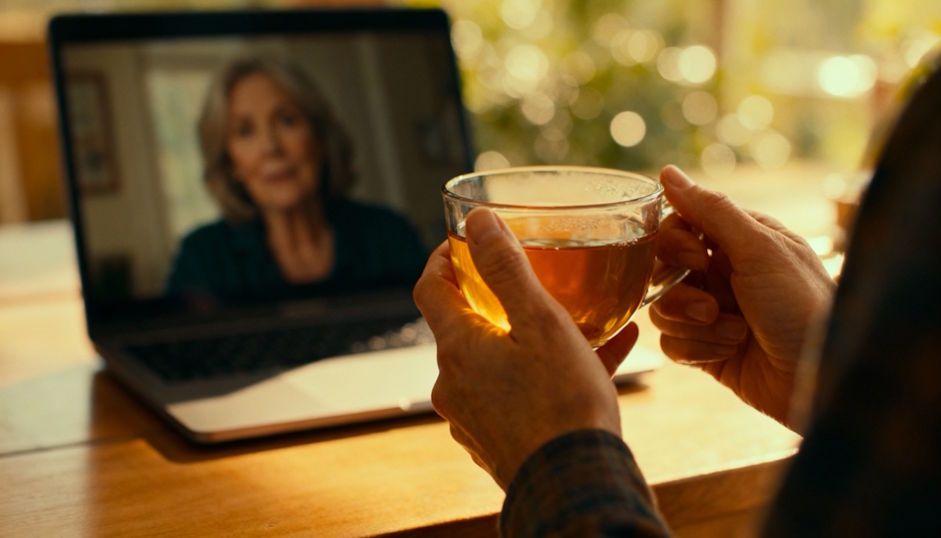Is Hypnosis Safe? Debunking Myths for Chesapeake, VA Residents (Virtual Sessions Included)
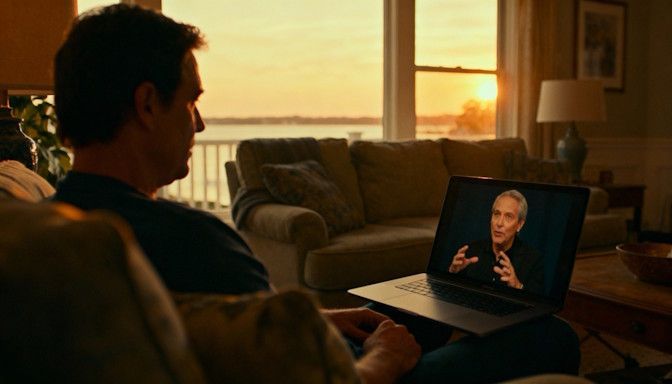
TLDR : Hypnosis is safe, natural, and you stay fully in control the entire time. Chesapeake residents can experience highly effective virtual hypnosis sessions from home—guided by a professional with nearly 40 years of experience.
What Is Hypnosis and Why Do So Many People in Chesapeake Ask If It’s Safe?
There’s something universal about the word “hypnosis.” Say it out loud anywhere in Chesapeake—maybe at Greenbrier Mall, a cookout in Great Bridge, or while grabbing coffee near Battlefield Boulevard—and you’ll see a mix of curiosity, fascination, and occasionally that tiny spark of fear. Hypnosis has been misunderstood for decades, mostly thanks to stage shows, movies, and those cartoonish swirling eyes people imagine when they hear the word.
But real hypnosis—the kind used in clinical settings, in hospitals, in behavioral health, and in my virtual sessions with Chesapeake residents—is nothing like the dramatic versions you’ve seen in pop culture. It’s safe, evidence-based, naturally occurring, and one of the most effective tools for changing habits, reducing anxiety, and calming the nervous system.
And because our practice focuses on virtual hypnosis, people across Chesapeake, Virginia Beach, Norfolk, and the wider Hampton Roads area now experience effective, private sessions right from their own home. That removes 90% of the worries people have before they even begin.
Before we get into the science and the myth-busting, let’s anchor on something important:
You are always in control during hypnosis. Every second. Every moment. Every breath.
That’s not opinion—that’s clinical fact. PsychologyToday.com, the American Psychological Association, and decades of peer-reviewed studies all confirm the same thing: hypnosis is a heightened state of focus and receptivity, not mind control, not unconsciousness, and not surrendering your will. When people here in Chesapeake ask “Is hypnosis safe?” what they really want to know is, “Will I be vulnerable? Will I lose control?” You won’t. Not for a moment.
Let’s break the whole thing down.
Does Hypnosis Make You Lose Control? (Short Answer: No.)
In clinical hypnosis, you stay fully awake, fully aware, and fully capable of choosing what you accept or reject. You’re not asleep. You’re not unconscious. You’re not handing over your mind. You’re simply entering a deeply focused state—similar to meditation, guided mindfulness, or that calming moment right before sleep when your thoughts turn soft and spacious.
A good comparison for Chesapeake locals is this: Imagine you’re sitting on your porch in Hickory or Deep Creek, watching the sunset. You hear the distant hum of traffic, some birds, maybe a neighbor starting a grill. You’re awake, but relaxed. A little dreamy. A little open.
That calming, expanded focus is much closer to hypnosis than anything dramatic you’ve seen on TV.
Clinical studies show:
- You cannot be made to do anything against your values
- You can open your eyes at any time
- You can talk, move, stretch, drink water, or stop the session if needed
- You remember what happens during the session
- You stay completely aware
Even better—in virtual hypnosis, through our practice, Clarity of Hypnosis, you’re seated comfortably in your own home, which actually increases your sense of safety and comfort.
Why Virtual Hypnosis Is Even Safer (and Often More Effective)
One of the biggest benefits for Chesapeake clients is our virtual-first model. Since all sessions take place online, you’re in control of your environment from the very beginning.
You choose:
- Your favorite chair
- Your lighting
- Your temperature
- Whether you want a blanket
- Whether you want earbuds or speakers
- Whether you want a closed door for privacy
No driving on I-64. No worrying about parking. No waiting rooms. No sitting across from someone in a clinical office. Just you, your space, and your session.
Research shows people respond better to hypnosis when:
- They feel relaxed
- They feel safe
- They feel private
- Their body is physically comfortable
Virtual sessions check every box.
Clients across Chesapeake—from Great Bridge, Grassfield, Hickory, South Norfolk, and Deep Creek—tell me all the time that virtual sessions help them drop into hypnosis quicker because they’re already in a familiar environment.
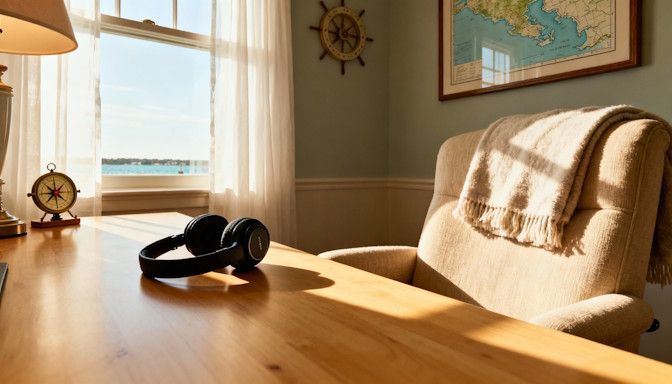
What Does Hypnosis Actually Feels Like? (Based on Nearly 40 Years of Guiding People Into It)
After thousands of sessions, here’s what Chesapeake clients most commonly report hypnosis feels like:
“My body was relaxed, but my mind was focused.”
“It felt like meditation, but deeper and more vivid.”
“I didn’t feel out of control—I just felt calm.”
“I could hear everything clearly.”
“I was aware the whole time.”
“I didn’t want to open my eyes because it felt so good.”
Those experiences match what the research says too. PsychologyToday.com and the Cleveland Clinic both describe hypnosis as a state of heightened focus, much like:
- Becoming absorbed in a good book
- Losing yourself in a movie
- Driving a familiar route and realizing the last 10 minutes flew by
Your brain naturally slips into hypnotic states all the time. Clinical hypnosis simply helps you reach that state with intention, so you can use it for a positive purpose.
Myths That Chesapeake Residents Ask Me About All the Time
Myth #1 — “Will you control my mind?”
No. You stay in control the entire time.
Hypnosis cannot override your morals, values, or choices.
Myth #2 — “Can you make me cluck like a chicken?”
Only if you really want to—kidding.
Stage hypnosis is entertainment, not therapy.
Myth #3 — “Will I get stuck in hypnosis?”
It’s impossible.
Your mind naturally shifts out of hypnosis on its own.
Myth #4 — “Is hypnosis dangerous?”
No. There is no legitimate scientific evidence that hypnosis harms people.
It’s endorsed by:
- The American Psychological Association
- The American Medical Association (historically)
- The Mayo Clinic
- The Cleveland Clinic
- Stanford’s Department of Psychiatry
Hypnosis has been used clinically for:
- Pain management
- PTSD support
- Anxiety reduction
- Habit change
- IBS symptom relief
- Surgery preparation
- Smoking cessation
And it’s been around longer than most modern therapies.
Myth #5 — “Is virtual hypnosis less effective?”
Actually, it’s often more effective.
Why? Because you’re calm, comfortable, and at home—your nervous system relaxes faster.
Is Hypnosis Scientifically Backed? Yes, and Over 70 Years of Research Says So.
Let’s talk science, because Chesapeake residents like things straight and factual.
Research consistently shows:
- Hypnosis reduces anxiety symptoms
- Hypnosis reduces perceived pain
- Hypnosis helps break habits
- Hypnosis improves sleep patterns
- Hypnosis improves IBS symptoms
- Hypnosis improves emotional regulation
- Hypnosis enhances treatment outcomes when combined with therapy
A widely cited analysis (often referenced on PsychologyToday.com and MayAllBeWell.com) found hypnosis helped clients improve symptoms by up to 79% compared to standard treatment alone.
Other findings:
- Stanford studies found hypnotizable states activate specific brain regions for focus and relaxation
- Cleveland Clinic recommends hypnosis for smoking cessation, anxiety, and pain
- Mayo Clinic uses hypnosis for surgical prep and chronic pain
Add to that nearly
40 years of personal clinical hypnosis experience, and I can say with confidence:
Hypnosis works—especially when guided by someone who has spent decades mastering the craft.
Why Chesapeake Residents Seek Hypnosis More Than Ever
The past few years have brought a surge of interest in hypnosis across Hampton Roads for issues like:
- Anxiety
- Stress
- Insomnia
- Chronic pain
- Nail biting / skin picking
- Smoking
- Weight loss
- Test anxiety
- Fear of driving or crossing the Chesapeake Bay Bridge-Tunnel
Remote life, busy schedules, and rising stress levels have people looking for solutions that:
- Work from home
- Fit into real life
- Provide fast, noticeable relief
Virtual hypnosis does exactly that.
What Happens During Your First Virtual Session
Here’s the structure Chesapeake clients can expect:
- Warm, friendly conversation about your goals
- Discussion of how hypnosis works
- Guided relaxation
- Focused hypnotic work targeting your specific issue
- Post-session recap
- Personalized homework (short activities to reinforce change)
You never lose awareness.
You’re never out of control.
You remember everything.
You can stop anytime.
And you finish feeling lighter, clearer, and more in control than when you started.
Is Hypnosis Safe? Final Answer: Absolutely.
In nearly 40 years of working with thousands of clients, here’s what I can say with complete confidence:
Hypnosis is:
- Safe
- Natural
- Comfortable
- Effective
- Backed by research
- Empowering
- Completely under your control
- Perfectly suited for virtual sessions
Hollywood got the drama wrong, but the science—and the results—speak for themselves!
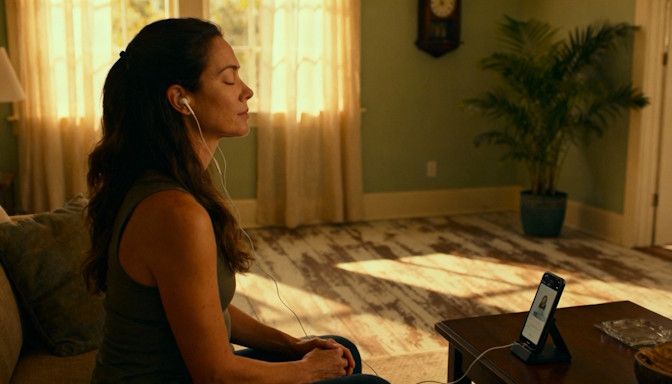
Ready to Try Hypnosis From Home in Chesapeake?
If you’re feeling stress, anxiety, habits you can’t shake, or challenges that keep piling up, hypnosis is one of the gentlest and most effective tools you can experience.
You don’t need to go anywhere.
You don’t need to do anything fancy.
You just need a quiet space, a device, and an open mind.
Whenever you’re ready, we're here for you! Click here to request a call-back or Click here to give us a call!
This is paragraph text. Click it or hit the Manage Text button to change the font, color, size, format, and more. To set up site-wide paragraph and title styles, go to Site Theme.
